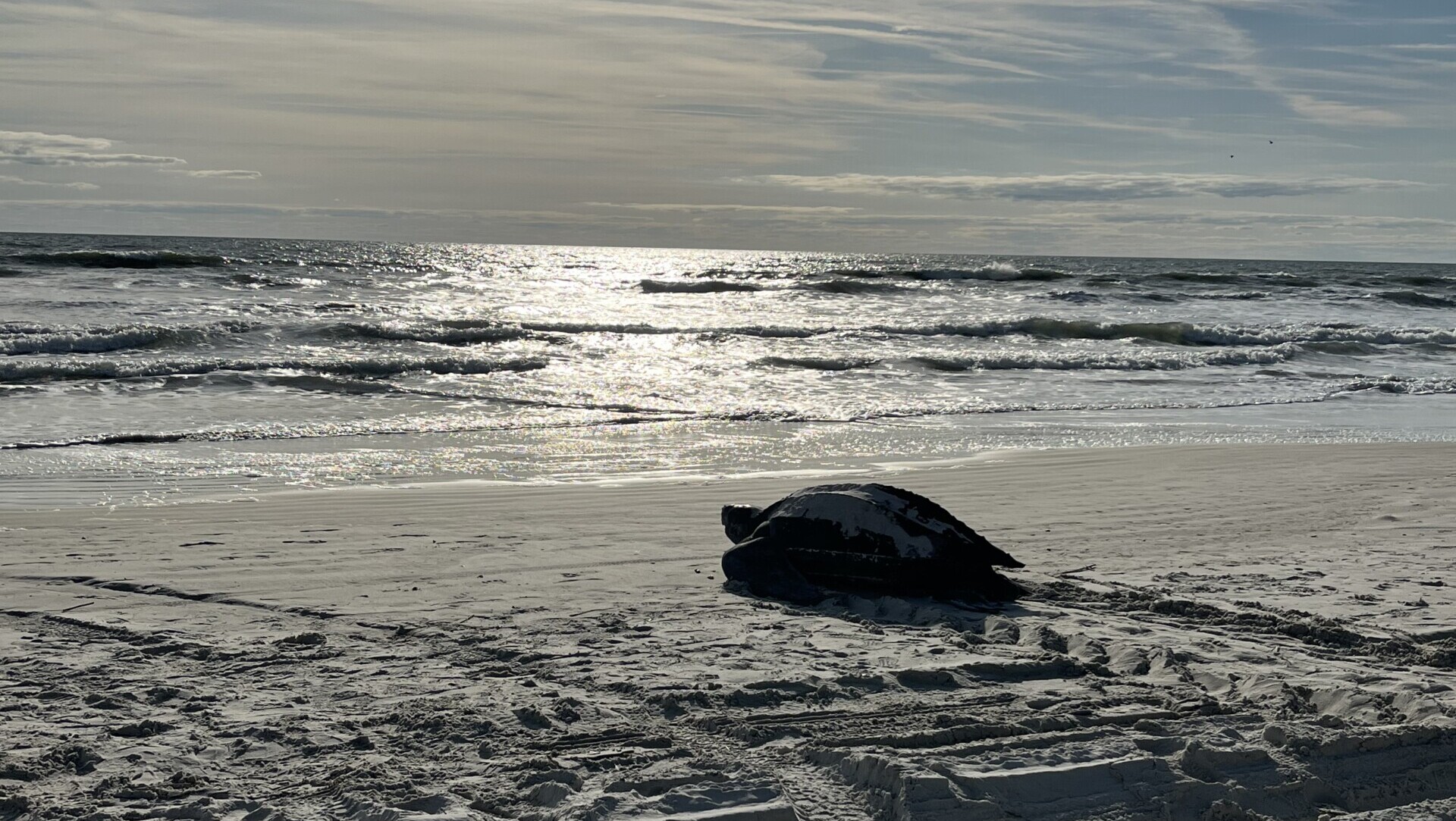Starting Wednesday, local governments and environmental agencies are asking people to keep their eyes out for sea turtles as nesting season begins.
That means beachgoers and people who live near the shore should avoid shining any unnecessary lights on the beach at night and remove sand castles, beach chairs, ruts in the sand and canopies from the beach by the end of the day. Lighting open fires or launching fireworks is illegal.
“Keeping the beaches dark at night is really important for sea turtles,” Ashley Raybould told Jacksonville Today. “They’re using visual cues to find a good place to nest, and when they’re hatching, using those same visual cues to find the celestial glow along the water to find the right way to go to the ocean quickly.”
Raybould is an environmental supervisor with St. Johns County. Her team drives around to fill in ruts in the sand and perform other preventative measures to make sure nesting and hatching sea turtles have the easiest route to and from the beach.
“We don’t want this wild species to expend extra energy wandering the beach or getting into any obstacles,” Raybould said.
Of the five species of sea turtles typically found in Florida, Northeast Florida beaches often host three: green sea turtles, loggerheads and leatherbacks.
Last year, St. Johns set a record for the number of green sea turtle nests spotted on the county’s beaches — 130, according to the Florida Fish and Wildlife Conservation Commission. In Duval County, just seven green sea turtle nests were recorded.
In total, St. Johns County staff reported more than 1,000 sea turtle nests on the county’s beaches in 2023, leading to an estimated 80,000 sea turtles hatching and returning to the Atlantic Ocean. In Duval, there were just more than 200.
The local numbers are an especially big deal, Raybould said, because all three of the species that typically nest on Northeast Florida beaches are protected by the Endangered Species Act.
Down in Marineland, near St. Augustine, the University of Florida is doing its own work to protect sea turtles at The Whitney Laboratory for Marine Bioscience
In addition to researching diseases that affect sea turtle and other wildlife populations, injured turtles on local beaches often wind up at the institute.
To help keep turtles from needing to make a visit to The Whitney, Sea Turtle Hospital Program Manager Catherine Eastman wants beachgoers to remember that the beaches aren’t just ours.
“Think of it as a habitat, not just a ballfield where you recreate,” she told Jacksonville Today.
“Lots of critters make the beach their home, so what can we do to keep that habitat a pristine habitat?”
Eastman said it’s important to pick up trash on the beach and to call the Florida Fish and Wildlife Conservation Commission if you see a turtle that appears to be injured or dead. You can contact FWC’s wildlife alert hotline at 888-404-FWCC.







